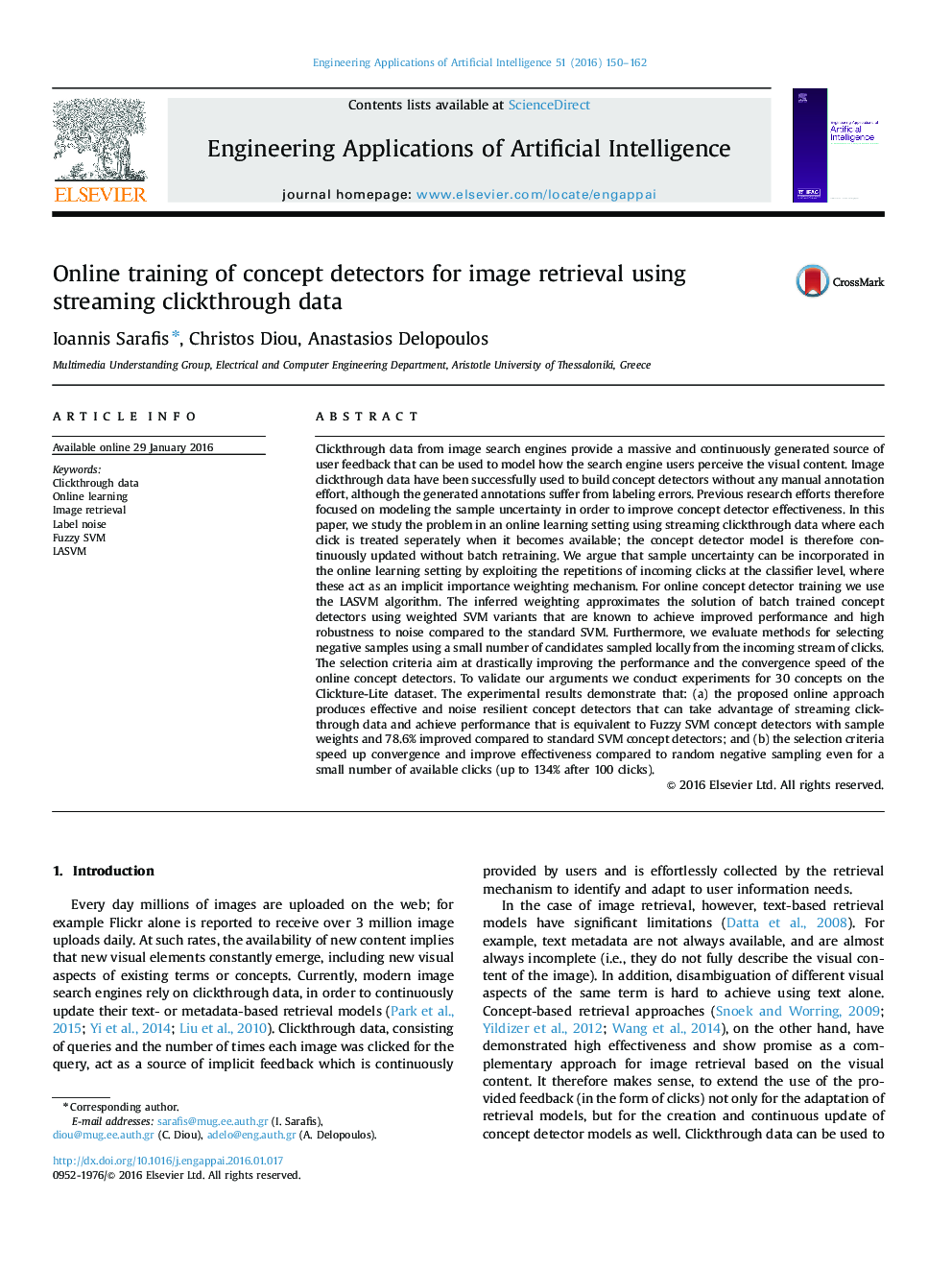| Article ID | Journal | Published Year | Pages | File Type |
|---|---|---|---|---|
| 380230 | Engineering Applications of Artificial Intelligence | 2016 | 13 Pages |
•Online training of concept detectors on streaming clickthrough data for image retrieval.•Continuous model update based on the stream of incoming clicks.•Implicit importance weighting of training samples based on the number of clicks.•Online concept detectors demonstrate high effectiveness and noise robustness.•Sample selection strategies boost the performance and speedup convergence.
Clickthrough data from image search engines provide a massive and continuously generated source of user feedback that can be used to model how the search engine users perceive the visual content. Image clickthrough data have been successfully used to build concept detectors without any manual annotation effort, although the generated annotations suffer from labeling errors. Previous research efforts therefore focused on modeling the sample uncertainty in order to improve concept detector effectiveness. In this paper, we study the problem in an online learning setting using streaming clickthrough data where each click is treated seperately when it becomes available; the concept detector model is therefore continuously updated without batch retraining. We argue that sample uncertainty can be incorporated in the online learning setting by exploiting the repetitions of incoming clicks at the classifier level, where these act as an implicit importance weighting mechanism. For online concept detector training we use the LASVM algorithm. The inferred weighting approximates the solution of batch trained concept detectors using weighted SVM variants that are known to achieve improved performance and high robustness to noise compared to the standard SVM. Furthermore, we evaluate methods for selecting negative samples using a small number of candidates sampled locally from the incoming stream of clicks. The selection criteria aim at drastically improving the performance and the convergence speed of the online concept detectors. To validate our arguments we conduct experiments for 30 concepts on the Clickture-Lite dataset. The experimental results demonstrate that: (a) the proposed online approach produces effective and noise resilient concept detectors that can take advantage of streaming clickthrough data and achieve performance that is equivalent to Fuzzy SVM concept detectors with sample weights and 78.6% improved compared to standard SVM concept detectors; and (b) the selection criteria speed up convergence and improve effectiveness compared to random negative sampling even for a small number of available clicks (up to 134% after 100 clicks).
